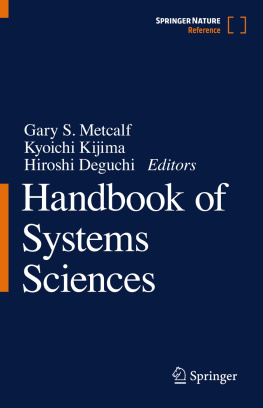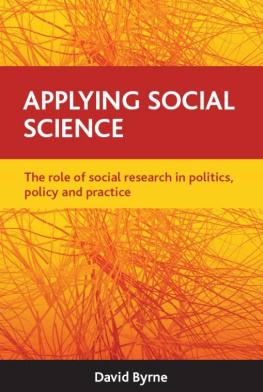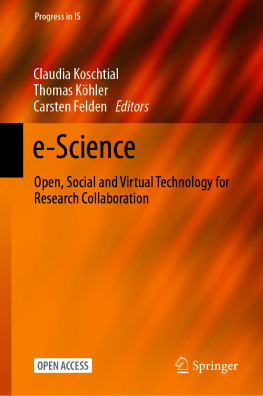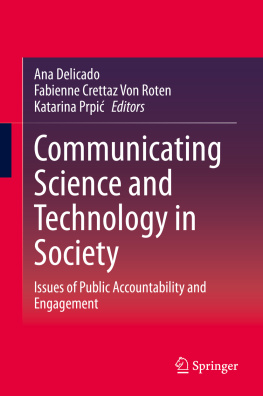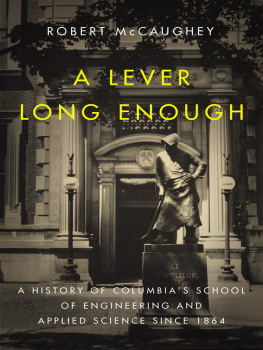WAR, SCIENCE
and
TERRORISM
WAR, SCIENCE
and
TERRORISM
From Laboratory to Open Conflict
Jacques G. Richardson
With a Foreword by
Kenneth Macksey
First published in 2002 in Great Britain by
FRANK CASS PUBLISHERS
Crown House, 47 Chase Side, Southgate
London N14 5BP
and in the United States of America by
FRANK CASS PUBLISHERS
c/o ISBS, 5824 N.E. Hassalo Street
Portland, Oregon, 97213-3644
Website: www.frankcass.com
Transferred to Digital Printing 2005
Copyright 2002 J. Richardson
British Library Cataloguing in Publication Data
Richardson, Jacques G.
War, science and terrorism: from laboratory to open conflict
1. Military research 2. Research Finance 3. Science Social aspects 4. Terrorism
I. Title
355.07
ISBN 0-7146-5312-8 (cloth)
ISBN 0-7146-8269-1 (paper)
Library of Congress Cataloguing-in-Publication Data
Richardson, Jacques
War, science, and terrorism: from laboratory to open conflict/Jacques G. Richardson
p. cm
Includes bibliographical references and index
ISBN 0-7146-5312-8 (cloth) ISBN 0-7146-8269-1 (paper)
1. Military research. 2. Military-industrial complex. 3. Terrorism. 4. World politics-21st century. I. Title.
U390 .R53 2002
35507-dc21
2002067627
All rights reserved. No part of this publication may be reproduced, stored in or
introduced into a retrieval system or transmitted in any form or by any means, electronic,
mechanical, photocopying, recording or otherwise, without the prior written permission
of the publisher of this book.
Typeset by 11/12.5 Palatino Light by Cambridge Photosetting Services
To Erika for her ideas, dedicated help and patience,
Mi-chan for her professional assistance, and
Pam for her perennial encouragement
Contents
List of Figures and Tables
FIGURES
Integrating Personnel with Doctrine and Equipment
The Way Some Game Theorists View the Terrorist's Gamble
Synoptic Weather Reporting, 5 June 1944
Illustrations of Psychological Warfare, First World War
Reasoned Analysis of some Historical-Event Processes
TABLES
Major Losses in Submarine Forces, 193945
Known Tests Completed by the Nuclear Powers
Daily Supplies of all Types for an Army Division, Then and Now
Food consumed by 2,000 Men and Officers Aboard US Battleship, 194145
Command Layers of Inadequate Performance within Landing Operation Shingle, Anzio-Cassino Area of Operations, 1944
Foreword
The purpose of this intriguing study of war by Jacques Richardson is to examine the interaction of scientific research on the art of war and its effects on society. In other words, how scientists, technologists and industry obtain employment and profits from the presence and activities of the armed forces, whose leaders and staffs seek advice, ideas and assistance from the intelligentsia. And also to what extent their joint contributions to the armed forces do stimulate and benefit society or contrariwise, presumably.
This is a well-developed, scholarly, analytical work founded on historical research that aims to explore original military concepts in order to challenge entrenched beliefs, guesses and, possibly, hardware. It does so by analysing specially chosen periods in the evolution of science and technology, starting with the invention of long bows and arrows and proceeding through naval, land, air, chemical, biological and nuclear weapons to electronic weapon systems. It also seeks to demonstrate how, through the ages, the flourishing volume and power of weapons has increased the magnitude of their destructive power to do more than obtain simple means of offensive or defensive advantage in the strategic and tactical arena in combat or theatres of war. Without pause, suggests Richardson, these have in the past usually helped achieve victory through the psychological application of terror. And today leaders attempt to focus on this principle by the development of controversial, complex methods of simulation of strategy, operations and tactics. This notion seems to come close to that repudiated theory, the strategy of indirect approach, which emerged as a psychological doctrine in the 1930s, whereby destruction of the enemy's morale/production potential is preferable to unacceptably high casualties among one's own forces. The theory was proven impractical long before it was on the verge of burial at the start of the Second World War.
Personally, even as a young officer, I never was convinced by the arguments supporting the strategy of indirect approach as a way of minimising casualties and destruction. And so I am pleased to read that Richardson does not fall into the traps that are baited by mere speculations and hypotheses. That is, those semi-plausible propositions that are quite frequently floated by ambitious inventors and entrepreneurs on the make, whose vivid conjectures are designed to show, for example, that some wizard, high-technological simulations can be trusted to solve the problems of how to understand the roots of armed disputes.
Nevertheless, it does emerge in this book, quite fascinatingly in some detail in Part III and its closing chapters, with what success topflight scientists of the past managed to estimate the shape of military things to come. Or the number of times they failed completely, of course. Be that as it may, right or wrong, we should not permit speculations to be adopted without remembering how fallible we are in the present as well as likely in our guesses about roles in future war. Not that we should be dismissive of carefully presented propositions suggesting that wars can be won relatively economically by new weapons and methods. Anybody who is in the slightest bit involved with today's scientists and technologists, who have at their fingers tips the latest techniques and machinery, will be aware that the vast facilities and financial support that can be placed at the disposal of the armed forces are capable (by judgement or luck) of pulling all sorts of rabbits out of hats that can bring with them astonishingly revolutionary ideas that, even only momentarily, can have decisive, war-winning effects.
I applaud Jacques Richardson's very apparent disquiet at what terrors the future holds for society. He is aware that an increasing proportion of the brilliant young people being recruited into various nations defence establishments are, as a matter of policy, starting younger and younger. For, clever though these fast-track young men and women may be, it should not be overlooked that, with all their enthusiastic inventiveness and persuasive intellectual abilities, they can generate and then, in all their inexperience, manage cleverly to sell horribly dangerous weapon systems to the supposedly experienced decisionmakers, who find themselves confused by the complexities of undesirable and costly products that contain unimaginable, maybe uncontrollable, lethal power.
KENNETH MACKSEY
June 2002
Preface
It is possible to live long and to travel far, without being once reminded, by any martial sight or sound, that the defence of nations [has] become a science and a calling.
Lord Macaulay
The symbiosis between science and war and the latter's surrogate, terrorism, is multifaceted. Books abound on fighting and its technologies past, present and future yet few have probed the extensive research lying behind the tools created for the combatant. So the story that evolves in this volume is really a triple account.


